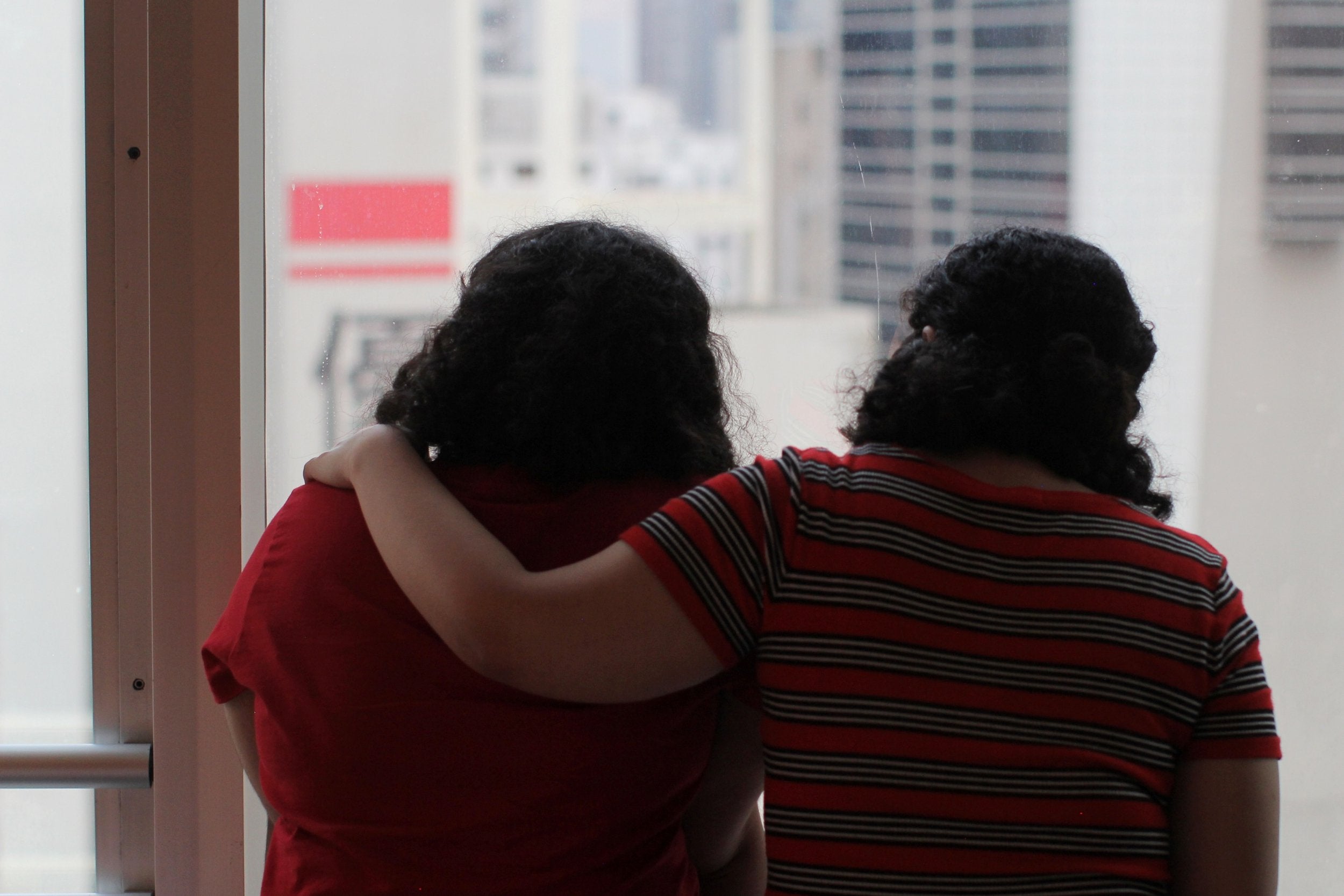Saudi sisters who fled family are granted asylum after six months stranded in Hong Kong
The pair, who have been given humanitarian visas in an undisclosed country, say they could be punished for renouncing Islam if they return home

Your support helps us to tell the story
From reproductive rights to climate change to Big Tech, The Independent is on the ground when the story is developing. Whether it's investigating the financials of Elon Musk's pro-Trump PAC or producing our latest documentary, 'The A Word', which shines a light on the American women fighting for reproductive rights, we know how important it is to parse out the facts from the messaging.
At such a critical moment in US history, we need reporters on the ground. Your donation allows us to keep sending journalists to speak to both sides of the story.
The Independent is trusted by Americans across the entire political spectrum. And unlike many other quality news outlets, we choose not to lock Americans out of our reporting and analysis with paywalls. We believe quality journalism should be available to everyone, paid for by those who can afford it.
Your support makes all the difference.Two Saudi sisters who spent six months hiding in Hong Kong after fleeing their family have left for an undisclosed country with humanitarian visas.
The women, aged 18 and 20, say they were beaten and treated like slaves by their brothers and father.
They fled last September while on holiday in Sri Lanka and have been stranded in Hong Kong since an aborted attempt to get to Australia, where they hoped to secure asylum.
The sisters, who are known by the pseudonyms Reem and Rawan, have asked for their identities and the country that granted them asylum to remain confidential.
“I was so happy,” the younger sister told Reuters in Hong Kong, describing how she felt when she was told she had been given asylum.
“I screamed, ‘It’s real, it’s happening’ ... It was just relief and unforgettable.”
They said they have lived in fear for six months, shuttling between 15 safe houses, staying with a nun, families and at a shelter for abused women.
They feared being intercepted by Saudi officials or relatives and forced home, where they believe they could be punished for renouncing Islam, which is punishable by death under the Saudi system of Islamic law.
The Saudi consulate in Hong Kong has not responded to requests for comment.
Speaking about her abusers, the younger sister said: “They were like my jailer, like my prison officer. I was like a prisoner.”
They were also critical of Saudi Arabia’s male guardianship system, under which women must have permission from a male relative to work, travel, marry, and even get some medical treatment.
“Women are just like slaves,” said the older sister, adding that her dream was to become a writer.
“I want to settle down and to feel safe, and (to know) that I have rights and I matter in that country. Just to live normal, and discover myself ... because now I own my life.”
At the beginning of the year, 18-year-old Saudi woman Rahaf Mohammed al-Qunun drew global attention with her escape from an allegedly abusive family.
She barricaded herself in a Bangkok hotel to resist being sent home and was later granted asylum in Canada.
Her case drew global attention to Saudi Arabia’s strict social rules, which rights groups say can trap women and girls as prisoners of abusive families.
The Saudi mission in Bangkok declined to comment on that case, saying it was a family affair.
The kingdom has given women more rights in recent years. Women have been allowed to enter sports stadiums, vote in local elections, and take a greater role in the workforce as Saudi Arabia tries to diversify its oil-dependent economy.
A ban on driving was lifted last year but many women have taken to social media to push for more freedoms. Campaigners say the main sticking point remains the guardianship policy.
Riyadh has also faced scrutiny from western allies over the killing of journalist Jamal Khashoggi at the Saudi consulate in Istanbul in October and over the humanitarian consequences of its war in Yemen.
The sisters watched the news of Khashoggi’s death unfold while in hiding in Hong Kong.
“I said to my sister, ‘I’m glad we left. This is the country we left’, there is no regret at all,” said the older sister, who counts George Orwell’s 1984 as one of her favourite books and likened its dystopian society to her homeland.
“It’s a science fiction book but it’s real in Saudi,” she said.
The pair hatched their escape plan over several years, secretly hoarding about $5,000, partly by saving on items they were given money to buy. They timed their escape it to coincide with the younger sister’s 18th birthday.
They said they had been wracked with uncertainty as a deadline for them to leave Chinese-ruled Hong Kong passed last month. Amnesty International had urged Hong Kong authorities not to return the sisters to Saudi Arabia.
The younger sister, whose favourite bands include Radiohead and Queen, said she hoped to inspire young people to stand against social injustice.
“Don’t just stick to the wall and cry,” she said. “Because if you would cry it would be worse ... Fight in your own way and you will find your own light.”
Reuters
Join our commenting forum
Join thought-provoking conversations, follow other Independent readers and see their replies
Comments